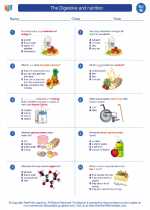Greases
Grease is a semisolid lubricant composed of oil and a thickener, typically a soap, that is used to reduce friction and provide lubrication in various mechanical systems. It is commonly used in applications where conventional liquid oils may not be suitable.
Properties of Greases
Greases have several properties that make them suitable for specific applications:
- Viscosity: Greases have a high viscosity, which allows them to stay in place and provide long-lasting lubrication.
- Additives: They may contain additives such as rust and corrosion inhibitors, anti-wear agents, and extreme pressure additives to enhance their performance.
- Thickener: The thickener in greases gives them their semisolid consistency and helps them adhere to the surfaces they lubricate.
- Temperature Range: Greases can withstand a wide range of temperatures, making them suitable for both high and low-temperature applications.
Types of Greases
There are different types of greases designed for specific purposes:
- Lithium Grease: Commonly used for general-purpose lubrication in automotive and industrial applications.
- Calcium Grease: Suitable for applications where water resistance is required, such as marine and agricultural equipment.
- Graphite Grease: Contains graphite particles for high-temperature applications and where metal-to-metal contact occurs.
- Silicone Grease: Offers wide temperature stability and is often used in electrical applications and O-ring lubrication.
Applications of Greases
Greases are used in a wide range of mechanical systems, including:
- Automotive components such as wheel bearings, chassis fittings, and universal joints.
- Industrial machinery including bearings, gears, and chains.
- Marine and agricultural equipment for various lubrication needs.
- Household and DIY applications for lubricating hinges, locks, and other mechanical components.
Study Guide
When studying greases, it's important to understand their composition, properties, types, and applications. Here are some key points to focus on:
- Describe the composition of greases, including the role of oil and thickener.
- Explain the properties of greases and how they contribute to their effectiveness as lubricants.
- Compare and contrast different types of greases, and list their specific applications.
- Identify the various mechanical systems and equipment where greases are commonly used.
- Discuss the importance of proper lubrication in maintaining the performance and longevity of mechanical systems.
Understanding the role of greases in lubrication and their specific applications will help you appreciate their importance in various industries and everyday life.
.◂Science Worksheets and Study Guides Eighth Grade. The Digestive System & Nutrition

 Worksheet/Answer key
Worksheet/Answer key
 Worksheet/Answer key
Worksheet/Answer key
 Worksheet/Answer key
Worksheet/Answer key
 Vocabulary/Answer key
Vocabulary/Answer key
 Vocabulary/Answer key
Vocabulary/Answer key
 Vocabulary/Answer key
Vocabulary/Answer key
 Vocabulary/Answer key
Vocabulary/Answer key
 Vocabulary/Answer key
Vocabulary/Answer key
